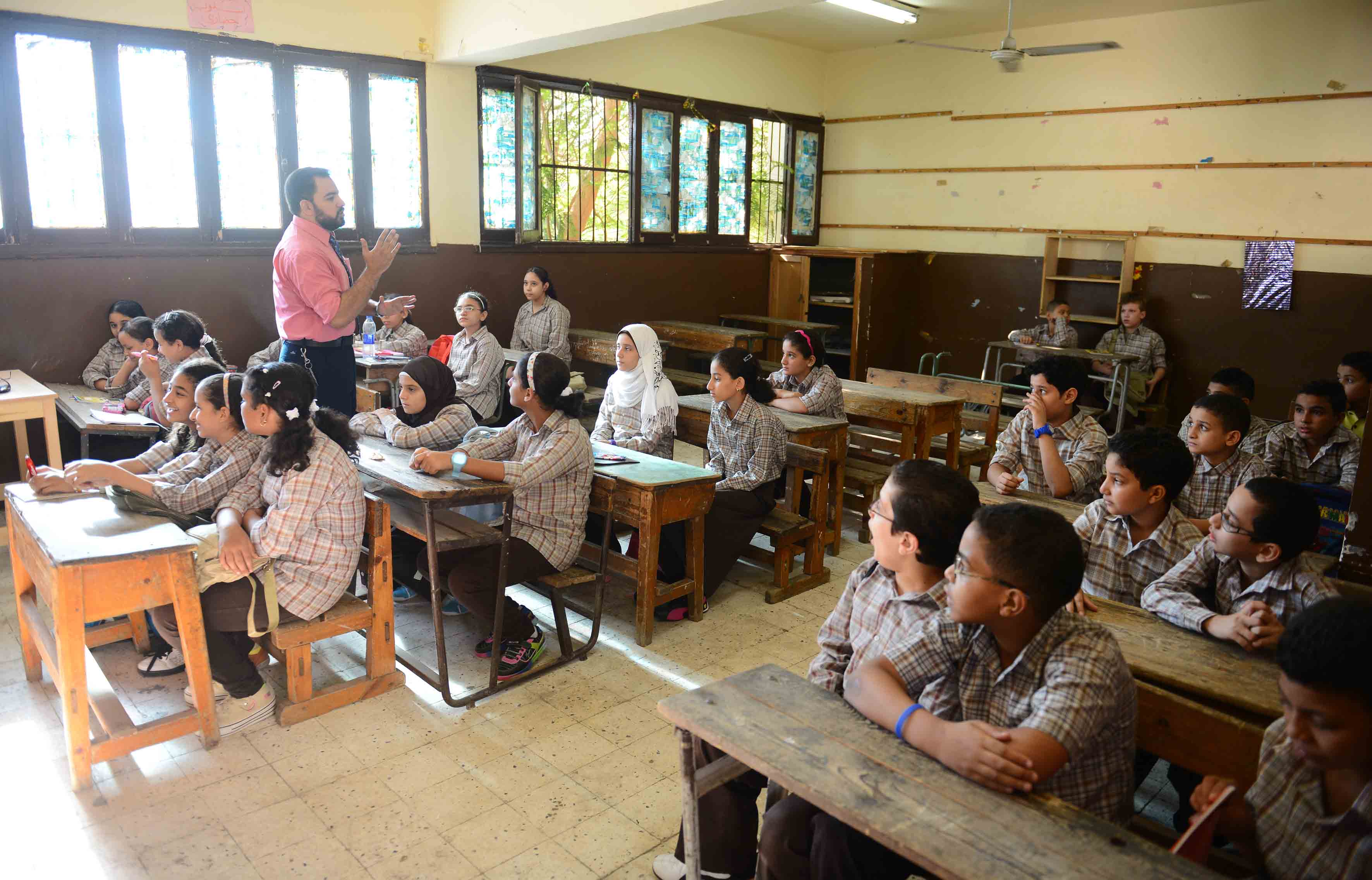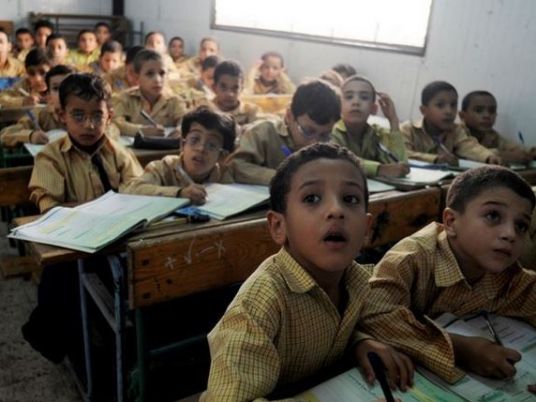Teachers in government schools across Egypt have started their planned boycott of the new school year, demanding, among other things, better pay, a plan for improving school environments, an increase in funding for education, and the purging of corrupt figures from the educational establishment.
The Independent Teachers’ Syndicate (ITS) estimates that around 50 percent of schools in Egypt’s less-urbanized governorates are taking part in the boycott, while the Ministry of Education claims that no more than 2.6 percent of schools are taking part.
The boycott began on Saturday 17 September, the first day of the academic year, and gained momentum through Sunday and Monday, with many more teachers joining.
“When teachers saw that our demands had not been sufficiently addressed throughout the summer and going into the school year, they decided to join. If this continues, more will join throughout the week,” said Ashraf Hefny, the ITS’s coordinator in North Sinai Governorate.
The syndicate says that the strike will continue until the cabinet gives a satisfactory response to its demands.
Immediate demands include the purging of corrupt figures within the Ministry of Education and in the educational system in general. In particular, the ITS is calling for the removal of the current Minister of Education, Ahmed Gamal al-Din Moussa. Although Moussa is a post-revolutionary minister, he has shown no initiative in reforming education in the new era, Hefny says.
The syndicate is also demanding an increase in the allocation for education from the national budget to 20 percent, from the current figure of less than 8 percent. The allocation to education as a proportion of the national budget has been decreasing for at least the last 20 years. The figure for 1988 was 10.6 percent of the budget.
In addition, the syndicate is keen to tackle what it sees as institutionalized corruption, including the alleged policy of funneling some of the education budget to “political security.”
“The practice of dedicating portions of ministerial budgets to financing Mubarak’s police force must end,” Hefny said.
The ITS claims that many other Education Ministry practices are rooted in corruption, such as issuing bogus payoffs to ministerial departments, and laundering money by earmarking spending in unnecessary areas, continues Hefny.
Representatives from the Ministry of Education deny wrongdoing. “If the ITS’s claims are real, then they should submit their claims to the public prosecutors,” said Reda Mosaad , the head of the ministry’s Public Education Sector, speaking on the Mehwar television channel on Monday.
Perhaps of more immediate concern to teachers on strike is the hoped-for minimum wage of LE3000, along with the payment of bonuses promised to public sector workers.
However, Moussa told state-run newspaper Rose al-Yousef last week: "I'm not Superman, to request a LE300 minimum wage for teachers," suggesting that the teachers' demand may be difficult to attain. Key figures in the teachers' movements and other labor movements have been calling for a minimum of LE1200.
Members from the ITS and other independent teachers’ groups complain that official government bodies are treating their cause as a purely financial one. “The Minister told us that our demands have to go through the Ministry of Finance,” said Ayman al-Beialy, a spokesman for the syndicate.
However, as syndicate representatives explain, any improvements in the financial position of teachers should be coordinated with general improvements in conditions and working practices.
“Along with the implementation of a minimum wage, we would demand that the government outlaw private tutoring and merit tests,” said Hefny.
Education in Egypt has been hampered by classroom conditions that offer little opportunity for meaningful education. Teachers complain that their job is made difficult by low wages and inappropriate school environments.
“How can teachers be expected to do their job with class-sizes ranging from 60 to 100 students, and then at the end of the month have to supplement their income just to make ends meet?” said head of the Giza Teacher’s Committee, Iman Hafez.
“These protests are as much about restoring the teacher’s dignity in life, which would allow them to be better teachers,” she added.
Cairo and Giza Governorates generally saw fewer teachers taking part in the boycott this week, while teachers in less-urban governorates, such as Beni Suef, Fayoum, and Gharbiya reported almost total participation.
“Teachers in rural governorates are worse off, especially since teachers tend to make less money from private tutoring and the schools are in a worse condition,” said Hafez.
Barakat al-Sharkawy, a member of the ITS responsible for monitoring the numbers of participants in each area, says that in some districts around the country, the boycott achieved 100 percent participation.
The group also claims that many of the teachers participating in the strike are now under investigation by their schools, a fact that could threaten their livelihoods. Hassan Ali, the head of the ITS, told Al-Masry Al-Youm that employees from the Education Ministry have gone to some schools and tried to dissuade teachers from boycotting by threatening them.
In Monufiya Governorate, where at least 80 schools participated in the boycott, Governor Ashraf Helal claims to have met with representatives from every school, and promised them that he will present their demands in the next budgetary cycle. However, in other governorates, such as North Sinai, the authorities appear to be awaiting the response from cabinet before taking further steps.
Teachers in most of the country complain that many of the parents display a cautious reticence towards the boycott. “Many are wary of teachers, because their experience with them is that they are people who don’t teach in schools, but charge a lot of money for private lessons,” said Hafez.
Parents in Ihnasya District in Beni Suef were livid with the boycott, setting fire to a school on Monday. The district had a high turnout for the boycott, with 75 out of the 113 schools participating, according to the syndicate.
“People waited eight months for security to return. We are asking parents to bear with us another week. When we remind them of how bad education is, they understand,” said Hefny. For the most part, parents have not played an active role in the boycott.
The syndicate is planning a large-scale demonstration in front of the cabinet on Friday if their demands have not been addressed.




